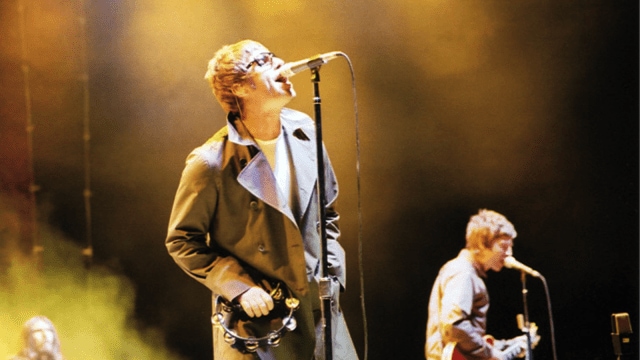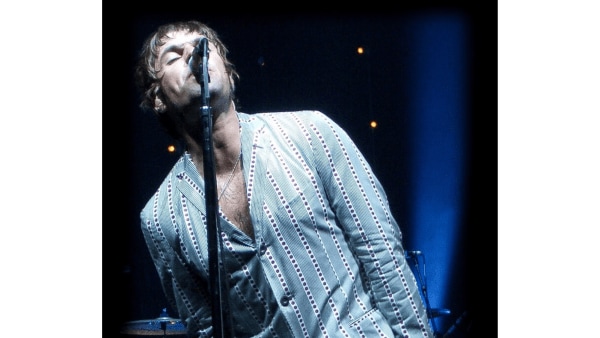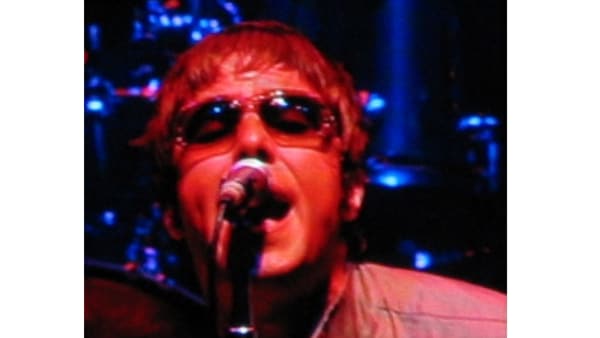
“The guns have fallen silent. The stars have aligned. The great wait is over. Come see. It won’t be televised.” With these words, Noel and Liam Gallagher announced an end to their warring. Oasis, the 1990s cult band, which hasn’t performed since 2009, will go on a two-month world tour in July next year. Ticket counters will open almost 11 months earlier on August 31. Tracks from the first recording of the band’s second album (What’s the story) Morning Glory? will be rereleased online on Friday. Fans, though, will be keeping their fingers crossed, given the brothers’ record of acrimony.
Messy splits are a part of rock-pop lore – Roger Waters and David Gilmour, the late Dicky Betts and Gregg Allman, Eddie Van Halen-David Lee Roth, Joe Perry and Steven Tyler. Even the Jackson siblings fought. But with Noel and Liam, one thing that fans always knew – the next fight was just around the counter. It was often a part of the performance – Liam’s head arched up in unbridled contempt towards his elder brother, with little regard for other bandmates and irreverence for the audience, was the band’s unwritten signature. At one concert, the younger Gallagher repeatedly heckled Robbie Williams with homophobic innuendos. Those at their receiving end ranged from the Russian football team to Kylie Minogue, from the royal family to Labour leader Jeremy Corbyn.

But great songwriting, Noel’s guitar playing, Liam’s nasal vocals and his sense of phrasing could make the music soar above the Gallagher brothers’ arrogance.
In the early 1990s, England was in an economic slump, large parts of the cultural landscape were bare, and British rock was struggling under the weight of American grunge. It was then that the band helmed by the two brothers from a working-class background in Manchester declared that they would be the next big thing after the Beatles. The members of Oasis were part of the generation of the young adults who had lived under the crushing neo-liberal policies of Thatcherism.

‘Bring it on Down’ from their debut album, Definitely Maybe captured the zeitgeist of the times. Its lines, “You are the outcast, You are the underclass. But you don’t care. Because you are living fast. You are the uninvited guest who stays till the end,” along with its sharp guitar chords and frenetic drumming evoked the back-to-the-walls, yet hopeful, life of the youth in council-estate housing. So did ‘Supersonic’ with its tribute to the Beatles writ large: “I need to be myself/I can’t be no-one else, I’m feeling supersonic, give me gin and tonic/You can have it all, but how much do you want it?You make me laugh/Give me your autograph/Can I ride with you in your BMW?/You can sail with me in my yellow submarine”.
Along with other bands such as Blur, Suede, Elastica, Pulp and Sleeper, Oasis became the voice of young British White Men — of Britpop – which looked upon the Swinging Sixties with a sense of longing. Perhaps, the longing made sense: The Sixties were a time when the welfare state was strong and the white working class never had it better. Definitely Maybe opened to record sales. And in the years that followed the constant one-upmanship between Oasis and Blur rivalry was often likened to the Beatles-Rolling Stone rivalry.
If the Beatles drew from Chuck Berry and Little Richards, Oasis made no secret of being inspired by the Fab Four – sometimes even being criticised for being imitators — including from Paul McCartney, who also admitted that he liked what Oasis was doing. All said and done, in many ways, Oasis was old-fashioned rock and roll. And the band – like much of Britpop – positioned itself as a counter to the often dark lyrics of American grunge acts like Nirvana. Noel Gallagher once said that he wrote, ‘Live Forever’ as a counter to Kurt Cobain’s, ‘I hate myself, I want to die’ – incidentally, Cobain too was a Beatles fan.

If the Gallagher brothers revolted against the grimness of the Thatcher years, they – and many of their contemporaries – also embodied the hyper-individualism and, at times, the anti-intellectualism of the years they grew up in. That made them perfect mascots for Blairite Britain – Noel and Liam were, in fact, amongst the first to be toasted by Tony Blair after New Labour’s victory in 1997.
Art often transcends its time. It also shapes and, in turn, is shaped by the contradictions of the times. Much after the brothers split, Oasis continued to bust charts on streaming platforms. In 2020-21, with the pandemic raging and the Conservative Party making a mess of running England, ‘Wonderwall’ — about a friend who would come and “save you from yourself” – crossed one billion streams on Spotify, the first British ’90s song to do so.



